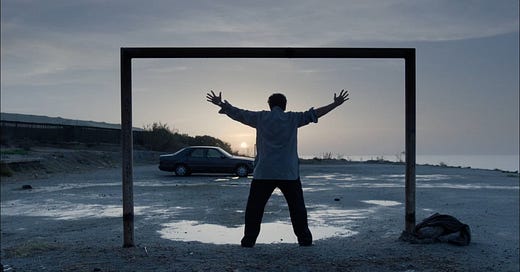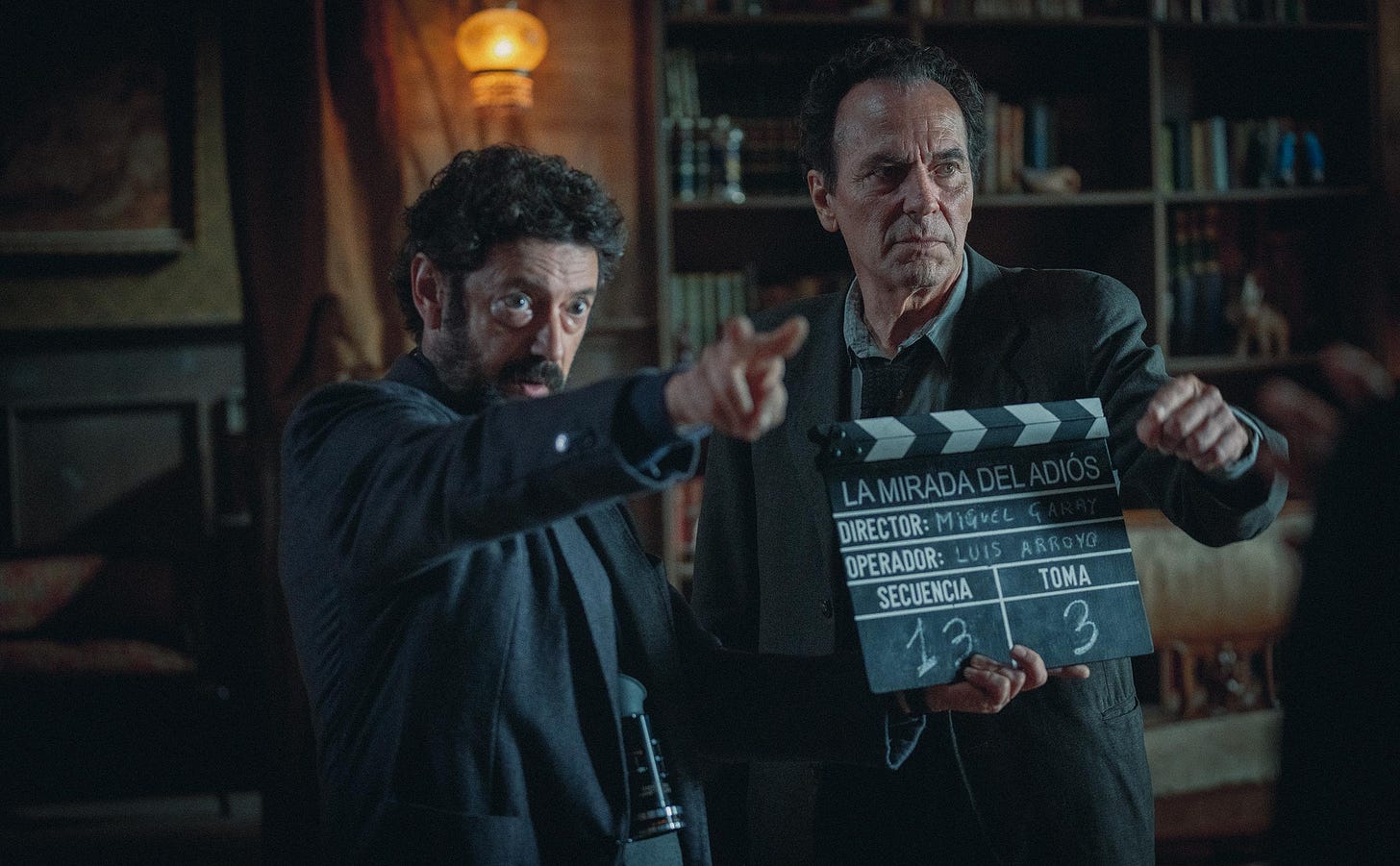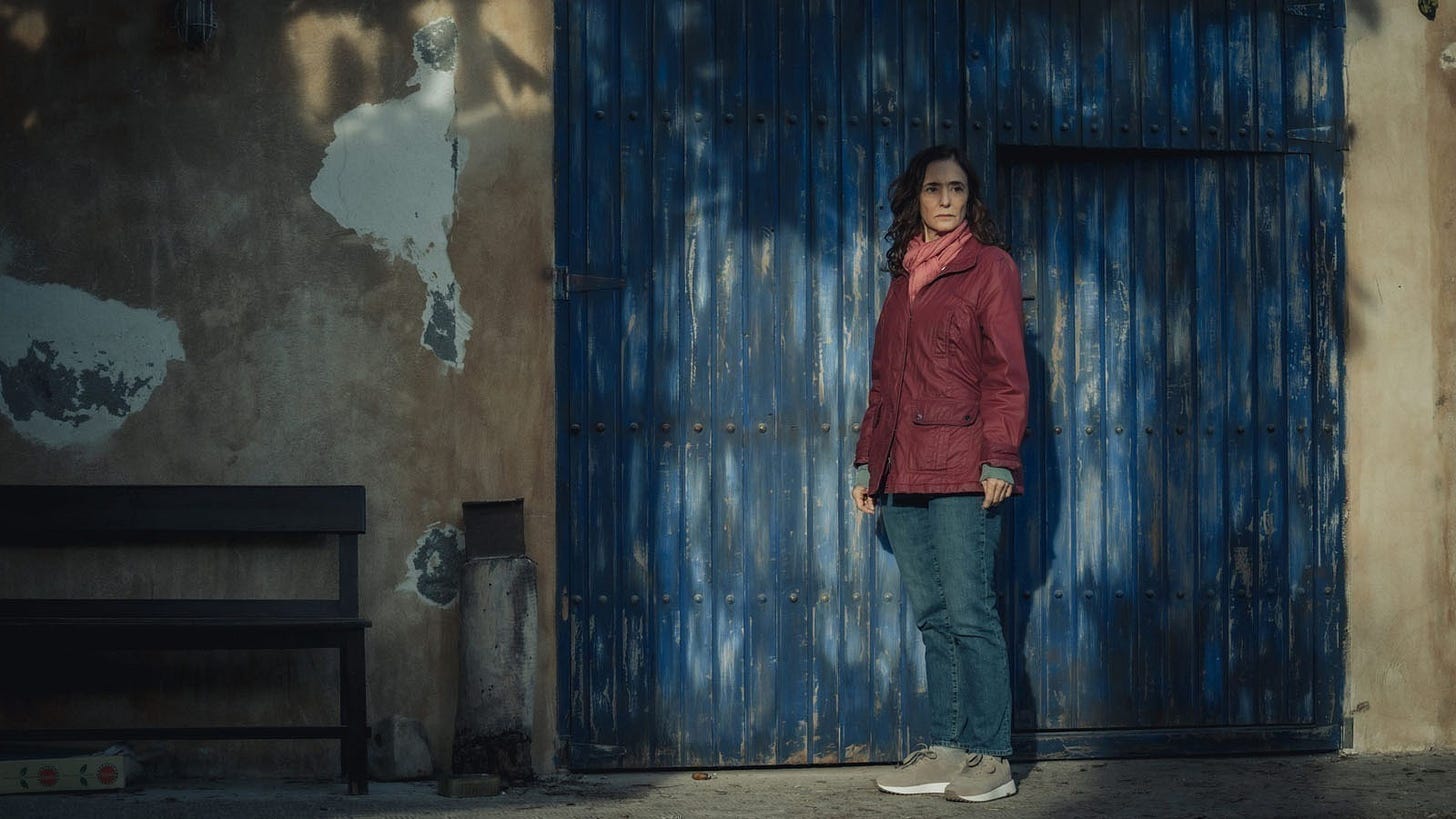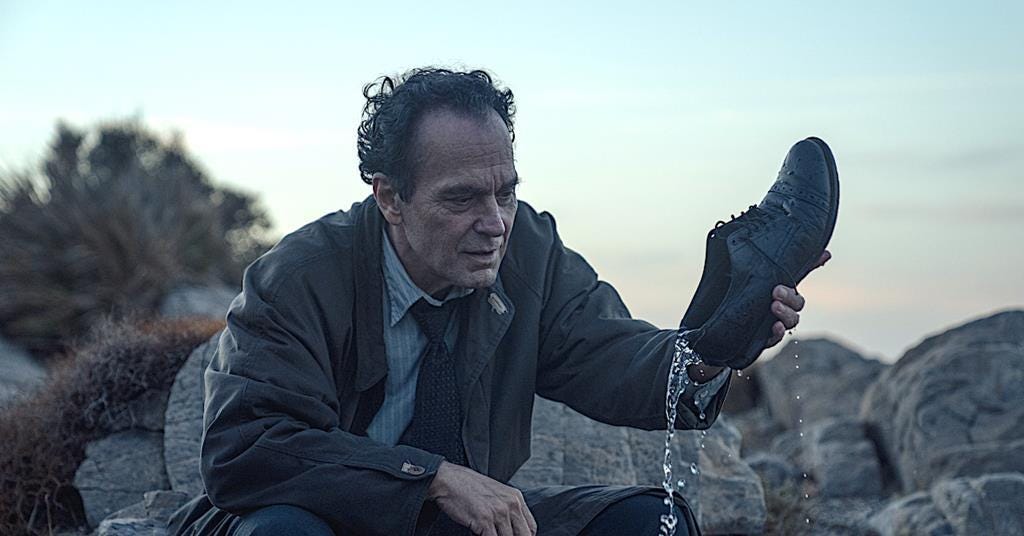Review - Close Your Eyes
Spanish legend Victor Erice looks into his own aging and love for film in a straightforward and thematically complex work of love.
Last year, Spain rounded out the shortlist to present as their contender for the Best International Feature Film nomination at the Oscars, where Society of the Snow eventually made the cut. Despite being a ‘correct’ choice, as it would easily appeal to Academy voters and was more commercial, I would have much preferred if Spain chose Victor Erice’s latest feature Close Your Eyes, which is finally getting a theatrical release in the US this year.
The announcement of its distribution was made a couple of weeks ago, and with great joy I wanted to write my thoughts about the film and share. If you have VPN or are currently in Spain, the film is available to stream and rent on VOD. This review won’t spoil the film, so you can read it if you want, but I do recommend that you watch it, before or after.
A Quiet Farewell: Victor Erice’s Close Your Eyes
Production from Spain and Argentina. Released in 2024.
When people refer to films that celebrate the magic of film, they would imagine those circle jerks of directors looking at their own childhoods and how cinema was their guiding light moving forward. They often lack a certain punch or are made solely for awards consideration, or both, with my favorite -or rather, unfavorite- example being Kenneth Branagh’s Belfast,which lacks identity and makes stylistic choices just for the sake of swooning an audience and awards bodies. What? It’s in black and white except for the sequences where they are in a movie theater? What does that have to do with anything? What is the point? There are many successful examples, some more autobiographical and less about the art form (Federico Fellini’s 8½ and Bob Fosse’s All That Jazz), and others that are more ambivalent and nuanced but still left me mixed, such as Spielberg’s very recent The Fabelmans. In spite of the overuse and bastardization of this mode of storytelling by certain filmmakers, there are still gems to find here and there, and leave it to Spanish master Victor Erice, who is too smart and subtle to imbue his audience with cheap emotionality in his latest film: Close Your Eyes.
Erice’s filmography is characterized by its small size and vast codas between films, with his previous feature being a documentary The Quince Tree Sun released in the nineties. In all of his work, he manages to show a clear idea to the viewer that is up to the task of looking for it. It was by design in the beginning, his first feature The Spirit of the Beehive was a critique of the Franco regime’s effect on society masked behind the fable of a little girl affected by a recent screening of Frankenstein in her hometown. The story goes that censors did not think a small drama film would have any kind of adverse political effects, and thank God for their lack of trying. Erice is usually light on plot, focusing more on the sounds, visuals, the characters’ slow changes and a possible decisive action towards the latter part of his films. He doesn’t need to dodge censors anymore, but his mode of storytelling yields something richer that benefits from repeat viewings.
Close Your Eyes is his most plot-driven film, though I wouldn’t call it by any means commercial. Its opening minutes feature gorgeous film photography of the exterior and interiors of a French chateau named Triste Le Roi, with heavy drapes, high contrast lighting, period detailings of the 1940s and setups for a classic Spanish adventure caper, where a rich old man asks another to look for his long lost daughter in China. What begins as an interesting introduction for what’s to come becomes a red herring, as a brief voice-over confesses to the viewer that this was a film within the film named The Farewell Gaze, and that the actor who played the protagonist, Julio Arenas, disappeared after filming this scene, never to be seen again. The ingredients seem to be there, a nostalgic look at the past and one’s own life, cinema as a way to express those emotions, yet it’s cut-off before it even begins.
After the tonal and thematic setup, the film truly begins, which jumps to the present day, changes to clean-cut and contemporary digital photography. The true protagonist is Miguel Garay, the director of The Farewell Gaze, played by Manolo Solo, who never made another film after Julio’s disappearance, who also happened to be his best friend. He seems to be an insert for Erice himself, who rarely made films and whose sophomore feature, El Sur, despite the acclaim it got, was famously incomplete due to lack of funding.
The inciting incident is a true crime show that calls the director for an interview about the disappearance, which him up with multiple conversations with many people close to him or the case, including the woman who runs the true crime show, but mainly with the actor’s adult daughter (played by Ana Torrent, who played the little girl in Erice’s debut feature), Max, the editor who worked on the film, and his Argentinian ex girlfriend Lola who also dated Julio (played by Soledad Villamil, famous for El secreto de sus ojos). All of them are heavily involved in the arts, be it as artists or academics, and through them, while the revival of the actor’s search and interest occurs, the true form of Close Your Eyes emerges as long conversations about aging, the value of life and art, and the changing ways people appreciate and view films.
These conversations are the heart of the film, and by expressing the magic and value of art and cinema, it also challenges and expresses frustration at the same assertion. Towards the end of the conversation with Ana, she says that she is getting tired of her job, and despite being a normal expression, it becomes meaningful and painful through context. She works as a tour guide in the Museo del Prado, and for her, the appreciation and knowledge of the plastic arts has become something of the everyday. If making, studying and talking/writing about art becomes part of the normal, is the normal enhanced or the art trumpled? What makes it so special if it is no longer limited to treasured moments? For Erice, it seems, again, to reflect his own sentiments. The answer may vary, and other characters and moments bring up counter points to this idea, but it is the essential challenge of the commoditized world of the 21st Century.
For the editor Max, his lamentations are those of the changes occurring within the film community. One already occurred within Close Your Eyes, as Erice switched to digital photography to reflect the present day. However, he also yearns for the days of full movie theaters, people having machines at home to rent his reels. Despite his business not going as well as he hoped and the value of his assertions, there are also points to be made to challenge it. Without the advent of digital, world cinema wouldn’t be as readily available to the public as it is now, and artists wouldn’t have the means necessary to pursue their careers as easily. In the halfway point, a young man sings My Rifle, My Pony & Me from Howard Hawks’ Rio Bravo, demonstrating certain knowledge of what the art form has left for the world, and would that have been possible if not for the rest. Is this availability affecting how people appreciate art? Maybe it just changes, and that is maybe Erice’s biggest reflection: maybe it is not good or bad, but just different, and he sees it with those eyes because of his aging and the passage of time.
All roads lead to Ozu, and for Close Your Eyes, the definitive idea is that the passage of time is inevitable, that societies and arts will continue and evolve, and that in the present, film is only a means but not an end. However, unlike Ozu, the transcendent moment of stasis does not lead to despair, but hope for the communal power that cinema can still have. The reopening of a theater and the screening of a reel may not be or cause any miracles -Max funnily points out that miracles don’t exist in movies since Dreyer died- but the act of watching, experiencing, discussing and reflecting afterwards may lead to something greater than the sum of its parts. Close Your Eyes is simple to understand and behold, but I reckon that it is only with time that the many words, images and musical cues presented here will bear fruit in my mind. Is the final gaze a recuperation of memory? Is it bliss? Is it confusion? That is up to us to figure out and decide.







